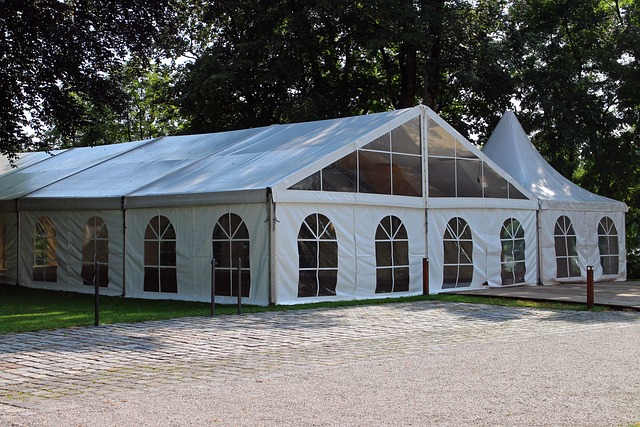Community outreach events are strategic tools for local businesses to engage with residents and stakeholders, gaining insights into community needs and preferences. Through surveys, focus groups, and interviews, businesses can tailor event programming that aligns with the community's identity and requirements, fostering trust, relationships, and long-term sustainability. This process involves setting clear goals, utilizing diverse promotional channels, and incorporating interactive elements to create memorable experiences. Measuring event impact through key metrics and fostering community connections strengthens relationships and enhances corporate social responsibility initiatives.
Community outreach events are powerful tools for local businesses to connect with their neighbors, understand needs, and foster growth. This article guides you through the process of successful community engagement, from identifying key goals and understanding community dynamics to creating compelling event strategies and practical planning steps. Learn how to measure impact and build lasting relationships that drive positive change in your neighborhood, ensuring Event Planning for Local Businesses is both meaningful and effective.
- Understanding Community Needs and Goals
- Creating a Successful Event Strategy
- Practical Planning Steps for Local Businesses
- Measuring Impact and Building Community Relationships
Understanding Community Needs and Goals

Community outreach events, a strategic component in event planning for local businesses, are pivotal in understanding and addressing community needs and goals. By engaging directly with residents and stakeholders, businesses can gain valuable insights into pressing local issues, cultural preferences, and aspirations for the future. This engagement fosters trust, strengthens relationships, and enables more effective event programming that resonates with the community’s unique identity and requirements.
Event planners should approach this process with a mindset of active listening and inclusive dialogue. Utilizing surveys, focus groups, and one-on-one interviews allows businesses to gather diverse perspectives and tailor their outreach efforts accordingly. Such initiatives not only ensure events are relevant and well-received but also contribute to the long-term sustainability and growth of local communities by aligning business goals with community aspirations.
Creating a Successful Event Strategy

When planning community outreach events, especially for local businesses, creating a successful event strategy is paramount. The first step involves understanding your target audience and aligning the event activities to cater to their interests and needs. Engage with the local community through surveys, social media polls, or direct conversations to gather insights on what would appeal to them. This data-driven approach ensures that your event offers something valuable, whether it’s educational workshops, entertainment, or networking opportunities.
A well-structured event plan should also include clear goals and objectives. Define measurable outcomes you hope to achieve, such as increasing brand awareness, fostering community connections, or driving sales for local businesses. Tailor the event program and promotional efforts accordingly. Effective communication is key; use various channels like email newsletters, social media campaigns, and local partnerships to spread the word. Ensure your strategy incorporates interactive elements that encourage participation and create a memorable experience for attendees, ultimately strengthening community ties and boosting business visibility.
Practical Planning Steps for Local Businesses

When planning community outreach events, local businesses can take several practical steps to ensure their efforts are effective and impactful. First, define your goals clearly, whether it’s increasing brand visibility, fostering customer loyalty, or contributing to a specific cause within the community. This will guide every decision from venue selection to activity choices.
Next, create a detailed budget that aligns with your objectives and target audience. Local partnerships can significantly enhance reach and reduce costs. Leverage social media and traditional advertising to promote events effectively. Ensure accessibility by providing clear instructions and accommodating various needs. Remember, successful event planning involves continuous communication—with vendors, partners, and attendees—to manage expectations and address any challenges promptly.
Measuring Impact and Building Community Relationships

Measuring the impact of community outreach events is a critical aspect of successful event planning for local businesses. By tracking key metrics such as attendance, engagement levels, and feedback from participants, organizations can assess the effectiveness of their initiatives. This data not only helps in refining future events but also demonstrates to stakeholders the positive influence of corporate social responsibility programs on the community.
Building strong relationships within the community is another essential outcome of these events. Local businesses have an opportunity to foster connections with residents, non-profit organizations, and other local entities. Through meaningful interactions, companies can gain a deeper understanding of community needs and develop tailored solutions that create lasting change. Such partnerships can lead to collaborative projects, enhanced goodwill, and stronger ties that benefit both the business and the community at large.
Community outreach events are a powerful tool for local businesses to connect with their target audience, address specific needs, and build lasting relationships. By understanding community goals, strategizing effectively, and employing practical planning steps, businesses can create meaningful experiences that resonate with attendees. Measuring the impact of these events fosters continuous improvement and strengthens community bonds, ultimately contributing to the success and sustainability of Event Planning for Local Businesses.





